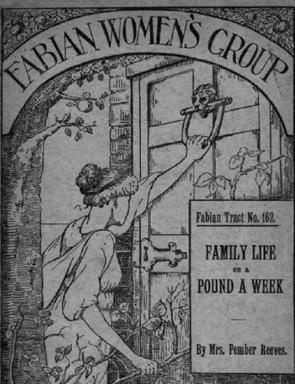
Just over 100 years ago the Fabian Society Women’s Group published a hugely influential report ‘Round About a Pound A Week’. A survey of poverty in London, the pamphlet was an indictment of the horrendous social conditions of the capital at the time. Its lessons linger on. For a century later, even after Labour governments built our welfare state, millions are still facing financial hardship, misery and despair.
Indeed in 2015 the threat of rising poverty looms large, despite George Osborne’s triumphal talk of a strengthening economy. Inequality 2030, a new report published by the Fabian Society this morning, looks at prospects for poverty and inequality over the next 15 years and reveals some deeply dispiriting projections.
By 2030, if nothing changes, our research suggests that one in five people in Britain will live in poverty. That will include almost 4 million children, 3 million disabled people and a million lone parents. The current government’s policies have set us on a path to spiralling poverty.
And all the while the rich will get richer. Unless there is significant policy change, the incomes of those with least will be just £200 per year higher in 2030 than today, but a typical high income household will be £13,000 better off.
Is this the Britain we want? Where food banks are not a temporary feature of an economic crisis but a permanent part of the lives of millions? Where, rather than sharing the proceeds of growth, the top ten per cent race off into the distance?
If it is not, then it is time for the Labour Party to rediscover its vocation: the fight against inequality and poverty. For there is nothing inevitable about these Fabian projections. It is the choices that politicians make which will determine the future, not abstract economic forces.
Our report may appear to bring despair, but we also show that an alternative is possible. Soaring poverty is the price of inaction, but there is a different path if a radical Labour government is elected and commits itself to change.
First we consider the prospects for ‘predistribution’. It is a much-derided term, but it captures an important idea, that inequality should be addressed in the marketplace, by making work pay and helping more people find jobs.
Significant labour reforms undoubtedly have a role to play. They represent our best chance of escaping from a low-wage, low-skill economic model. We recommend that the next government adopts policies to achieve an 80 per cent employment rate, raises the minimum wage a lot and leads a national crusade to extend take-up of the living wage. But alone ‘predistribution’ won’t fix the poverty problem. For our research shows that the biggest driver of rising poverty is our benefits and tax credit system.
The living standards of low and middle income households have already taken a big hit as benefits and tax credits have been slashed these last five years. But our projections now reveal that current government policy will lead to their living standards stagnating for the foreseeable future, even if the economy is doing well: such is the importance of social security for household incomes. And that’s before any further post-election cuts. If the Tories were able to implement their plan to slash benefits by an extra £12 billion then the outlook would be even worse.
So to fight poverty we need to end the war on welfare. The temptation for politicians to engage in an austerity arms-race over our demonised benefit system is perhaps understandable. But it’s now clear that sharing the proceeds of growth through our tax and benefit system is by far the most effective way of preventing poverty.
However we also know that the public finances will not permit Brown-era largesse, even if spending on benefits was wildly popular. So our report proposes an elegant solution: spend only the proceeds of predistribution on new redistribution. In other words, when employment and wages rise, the extra revenue arising from higher taxes and reduced benefit payments should be recycled to low and middle income families.
To do this we recommend that a new Labour government should establish a Prosperity Fund that could start work this year. It would decide how much money had been generated from labour market improvements and recommend the best ways to return the cash to families, to tackle poverty and raise living standards. The rest of the public finances would be unaffected.
For 131 years the Fabian Society has been fighting inequality and poverty. Sadly victory feels further off than it has for some time. But this general election marks a fork in the path and our report paints a picture of two alternative futures. If we do nothing, then in 15 years’ time, there will be far more poverty than today. But if a radical Labour government takes action, poverty can be defeated.




More from LabourList
‘Labour’s quiet quest for democratic renewal’
‘Labour promised to make work pay. Now it must deliver for young people’
‘Council Tax shouldn’t punish those who have the least or those we owe the most’